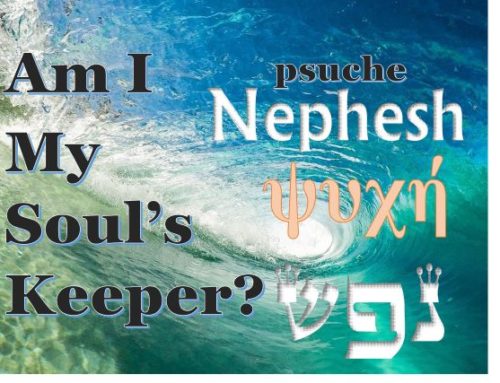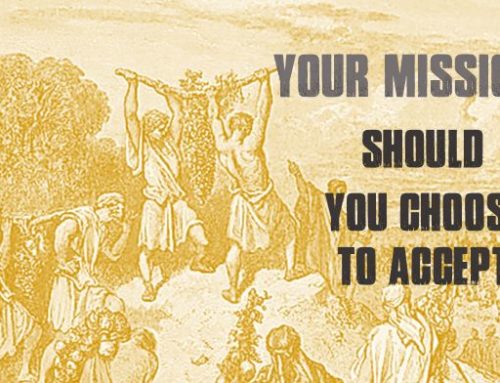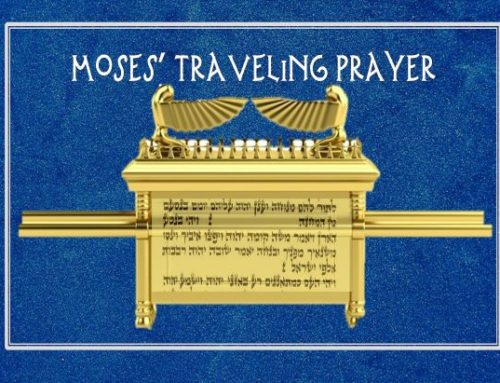Torah Portion, Vayeira, (Genesis 18-22.24, II Kings 4.1-27)
In preparation for this week’s Torah Portion I asked my wife if she had heard about the matzah bread Lot’s wife made. Thinking I was joking, she said, “What did she use too much salt?” “Seriously”, I said, “Someone made matzah that evening! They feasted before their exodus from Sodom!” Re-reading the story however I noticed a cultural anomaly. Neither Lot’s wife nor his daughters made the matzah. Lot did!
Scripture is fragrant with aroma of bread. Three major kinds, flat breads, pan baked, one of which weighed five pounds, and round breads with varieties of grains and wheat recipes are mentioned. Last week we spoke of the bread and wine of Melchizedek. (Gen. 14. 18) This week’s Torah Portion describes two meals, Sarah’s three unleavened cakes, and Lot’s family Matzah. Some see in them echoes of Passover.
Even more fascinating, some archaeologists argue there were religious overtones to unleavened bread during a Spring feast, even in Abraham’s day.[1] It seems Moses purposely paralleled Israel’s exodus in Lot’s rescue. Here are just a few of the amazing parallels of Lot and Israel.
- Both had a feast (mishteh)
- Both ate Unleavened Bread.
- Both were safe behind closed doors in the night.
- Both left in haste.
- Both saw judgment of the destroyer who brought judgment on the land.
Yeshua pointed to Lot’s story as a warning to a future exodus. Three parallels especially speak to us in these end times, the meal of matzah, the cry of Mercy and the call to the mountain.
I. The Meal of Matzah
“But he urged them strongly, so they turned aside to him and they came into his house. He prepared a feast for them and baked matzot, and they ate.” Gen. 19. 3 TLV
Matzah, a flat bread made in haste, is given no time to ferment or rise. Like the way it was made, at the first Passover Israel was commanded to “eat it in haste”. (Ex. 12.11) It speaks of transition. Sarah baked a kind of unleavened bread for the Lord earlier in the day. It marked a transition from barrenness to the promised birth of a son. Lot baked matzah for his two visitors, the first time this bread appears in the Bible. The great Jewish commentator, Rashi, noted this passages connection to Passover.[2] Was there already a religious significance to matzah in the Spring? Perhaps, but the text does say explicitly. So why matzah? Perhaps we can gain insight from Scripture’s other, not so pleasant, name for matzah – “The bread of affliction”. (lechem oni). The Hebrew word for affliction can also mean poor, and so this bread is sometimes associated with physical and spiritual poverty!
“Do not eat it with bread made with yeast, but for seven days eat unleavened bread, the bread of affliction, because you left Egypt in haste—so that all the days of your life you may remember the time of your departure from Egypt.” Deut. 16.3 NIV
Both Lot in Sodom and Israel in Egypt were reduced to poverty and affliction. How had they come to such a place? There was a day when Lot’s flocks and servants were so numerous that they competed for the resources with Abraham. His journey to affliction began the day he pitched his tents toward Sodom. Before long we see him living there, sitting in its gate. The servants are gone, and the flocks not mentioned. If just ten of Lot’s many herdsmen, those who grew up under the righteous influence of Abraham lived in Sodom, the city likely would have been spared. Unfortunate for Lot, herdsmen are not city dwellers. Lot’s move to Sodom was likely a step too far. When he saw the two strangers though, he jumped to do what Abraham had taught him, offer hospitality, wash their feet, and feed them. And what does he prepare? Matzah! It not only spoke of his reduction, more so it spoke of redemption. Lot is coming out. Israel left slavery plundering the riches of Egypt, Lot escaped with just his clothes, but he will leave and that is God’s mercy. What bread is given to you and me for redemption?
“While they were eating, Jesus took bread, and when he had given thanks, he broke it and gave it to his disciples, saying, “Take and eat; this is my body.” Mat. 26. 26 NIV
On the Passover, Yeshua not only identified with the unleavened bread, being sinless, but also with the brokenness and affliction of that bread. Our exodus from the slavery of Sodom and Egypt begins with a meal.
II. The Cry Mercy
“And while he lingered, the men took hold of his hand, his wife’s hand… the Lord being merciful to him…they brought him out and set him outside the city.” Gen. 19. 16 NIV
High above the cities of the plain a cry of mercy rang forth on behalf of that city, Abraham interceding with the Lord to find just ten righteous men and spare the city. Below, we see Lot who does not deserve to be rescued, but nevertheless God showed him mercy. It says, “The Lord being merciful to him…brought him out.” Did you know that the Lord is being merciful to you? Think of all the times that you could have gone into eternity, but he spared you. Israel left in haste, Lot lingered. Many of us have lingered too long at the gates of sin, only to have God’s grace take you by the hand. Like Israel from Egypt, Lot’s family was rescued by an outstretched hand.
III. The Call to the Mountain
“As soon as they had brought them out, one of them said, “Flee for your lives! Don’t look back, and don’t stop anywhere in the plain! Flee to the mountains or you will be swept away!” Gen. 19. 17 NIV
A mountain of safety was before him, but Lot spied to something small, Zoar means small and insignificant. What is the magnitude of our miracle? Israel experienced four stages of redemption, beginning with the words, “I will bring you out” (Ex. 6.6) and culminating with, “I will take you as My people, and I will be your God”. (Ex. 6.7). We talk about those four when we take the four cups on Passover. It is possible to come out of Egypt but fall short of deliverance. Tragically, Lot’s wife does not even pass the first level redemption.
In the modern Passover it is customary to sing a fun song, Dayeinu (enough for us). Perhaps you have sung it, but have you thought about its words?
If He had brought us out from Egypt, and had not carried out judgments against them
— Dayeinu! Enough for us!
If He had brought us before Mount Sinai, and had not given us the Torah
— Dayeinu! Enough for us!
If He had given us the Torah, and had not brought us into the land of Israel
— Dayenu, Enough for us!
I jokingly say that Lot must have sung “Dayeinu” that night, for in the morning he has a new Dayeinu verse. “Look”, he says, “here is a town near enough to run to, and it is small! Gen. 19. 20 NIV His theme was, “enough for us”. The angel agreed!
Yes, it was a miracle that he escaped to Zoar, but oh what he forfeited. It is not enough to simply escape. What a tragedy had Israel escaped Egypt, but missed the Promised Land, or arrived to Sinai, but not receive the Torah. Anything short of reaching our loving Heavenly Father misses the mark. He came not just to set the captives free but to take them to Himself.
Conclusion
Lot’s meal of matzah marked a departure from the sin of Sodom. Israel’s meal of matzah marked a departure from the slavery of Egypt. Yeshua’s meal of matzah marks a transition from death to life. There is a cry of mercy that has gone forth on your behalf and the hand of the Holy Spirit is drawing all men to be saved. May we not settle for the small and insignificant level of simply being saved, when there is a call to go up to the mountain of the Lord. Our one opportunity on this earth will shape the destiny of those who come behind us. Come let us go up to the mountain of the Lord today.
Shavua Tov from Zion.
[1] Roland De Vaux, Ancient Israel: Its Life and Institutions, trans. John McHugh (Grand Rapids: William B. Eerdmans, 1997), 490.
[2] Yisrael Isser Zvi. Herczeg and Rashi, The Torah: With Rashi’s Commentary Translated, Annotated, Elucidated, vol. Genesis (New York: Mesorah Publications, 1995), 194.




